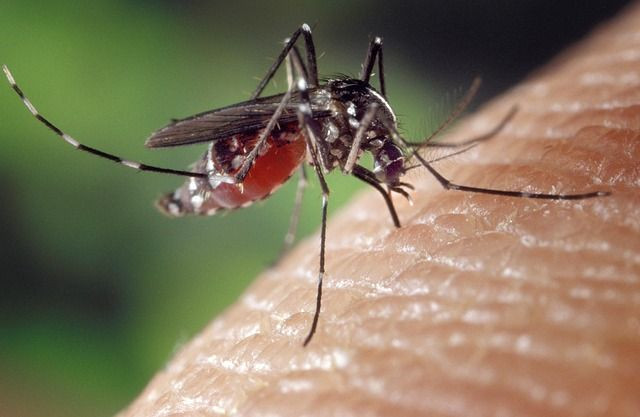Zika Virus 2017: Just Because It's Winter Doesn't Mean Outbreak Is Over Yet

This summer, the Zika virus spread fear throughout the Americas, and caused thousands of cases of microcephaly, a serious birth defect found in some babies born to infected mothers. Although the virus is spread through mosquito bites, a new paper warns that just because temperatures are cooling doesn’t mean the Zika scare is over.
In a paper published in the December 2016 issue of Wilderness & Environmental Medicine, Dr. James Diaz, of LSU Health New Orleans School of Public Health, explained there is evidence, although rare, that infected female mosquitoes can pass on the virus to their eggs, and these eggs can survive the winter. A team from the University of Texas Medical Branch in August purposely infected female mosquitoes with the virus and observed whether or not this virus was passed onto the larvae.
Read: A Brief History Of Zika Virus
According to study author Robert Tesh in a recent statement, although the incidence of females passing on the virus to their eggs was very low, “when you consider the number of A. aegypti in a tropical urban community, it is likely high enough to allow some virus to persist, even when infected adult mosquitoes are killed."
Unfortunately, the cold is not enough to kill possibly Zika-infected mosquito eggs.
“Not only can the eggs of Aedes species mosquitoes survive winter, wide variations in daytime temperatures can stimulate egg-laying and shorten the time it takes for mosquitoes to become infective after biting a person with Zika," explained Diaz. "What's more, researchers have shown that while relatively rare, Aedes aegypti mosquitoes are able to transmit Zika to their offspring, a mechanism allowing the virus to survive from one season to the next."
Our biggest hope in quelling further cases of ZIka virus and Zika-induced microcephaly is to develop a vaccine. In August, some progress was made toward developing such a vaccine: Although not yet completed, Massachusetts Institute of Technology researchers are developing an approach which allows for quickly creating vaccines customized to fight various pathogens, Reuters reported. This means they could get the vaccine out faster to those who need it most.
Source: Diaz JH. Preparing the United States for Zika Virus: Pre-emptive Vector Control and Personal Protection. Wilderness & Environmental Medicine. 2016
See Also:
Zika Early Symptoms 2016: Warning Signs That You're Infected And What To Do
Is There A Cure For Zika? Everything You Need To Know About The Mosquito-Borne Disease



























